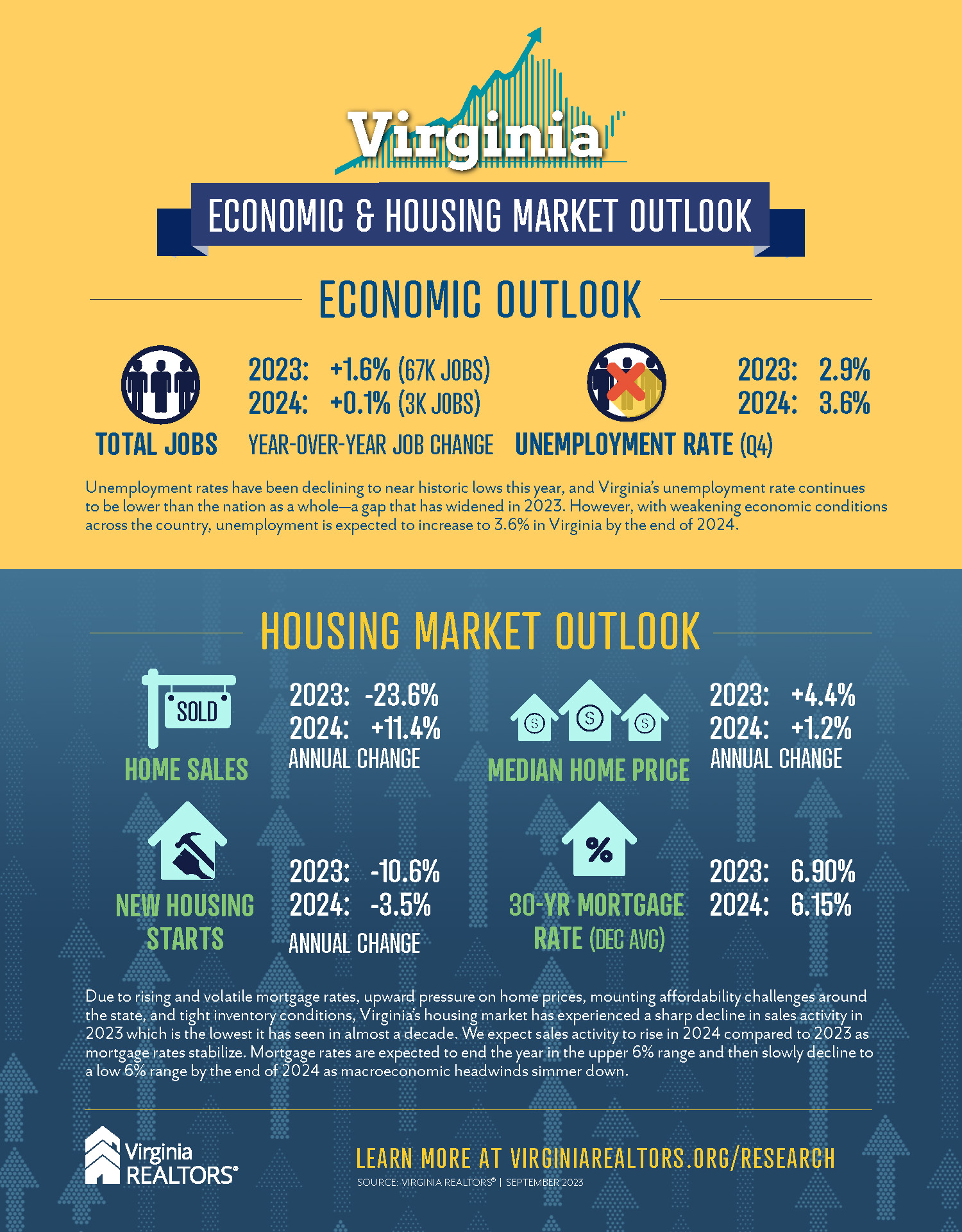The real estate housing market is constantly evolving, impacted by a variety of factors such as economic conditions, consumer behavior, and technological advancements. As we approach the year 2024, it’s important for potential buyers, sellers, and investors to be aware of the latest market trends in order to make informed decisions. In this blog post, we will explore the top real estate housing market trends that are expected to have a significant impact in 2024.
Overview of the Current Housing Market
Before diving into the future trends, it’s important to understand the current state of the housing market. The United States has been experiencing a strong and steady recovery from the 2008 housing crisis, with home prices reaching record highs in many regions. Low mortgage rates, an increase in job opportunities, and a growing economy have contributed to this recovery.
However, there are some concerns about the sustainability of this growth. According to the Federal Reserve, household debt reached a record high of $14.6 trillion in 2020, surpassing pre-recession levels. This has raised concerns about potential risk in the event of another economic downturn. In addition, there has been a shortage of affordable housing, making it difficult for first-time homebuyers to enter the market.
Key Factors Influencing Market Trends
There are several key factors that are expected to shape the real estate housing market in the coming years. These include:
Economic Conditions
The health of the economy plays a major role in the housing market. When the economy is strong, people feel more confident and secure in their jobs, which can lead to an increase in home buying. Conversely, a weak economy can result in a decline in home purchases and a rise in foreclosures.
Demographics
Demographic shifts, particularly among millennials and baby boomers, will also have a significant impact on the housing market. As millennials reach their prime home buying years and baby boomers retire, there will be changes in housing preferences and demand.
Government Policies
Government policies, such as tax laws and regulations, can greatly influence the real estate housing market. For example, changes to tax deductions for mortgage interest or property taxes can impact affordability and demand for homes.
Regional Market Comparisons
The real estate housing market is not uniform across the country. Regional differences can have a significant impact on market trends and should be taken into consideration when analyzing the industry. Let’s take a look at some of the current trends in different regions of the United States.
West Coast
The West Coast, specifically California, has been experiencing a strong seller’s market with high demand and low inventory. This has led to skyrocketing home prices, making it challenging for buyers to enter the market. However, there are concerns about an oversupply of luxury homes and potential risk if the economic conditions change.
Northeast
The Northeast has also seen a seller’s market, although not as extreme as the West Coast. Limited inventory and high demand have driven up home prices, but there are signs of a cooling off period in some areas. The pandemic has also caused an increase in remote work, leading to an exodus from major cities and a rise in demand for suburban and rural properties.
Midwest
The Midwest has been experiencing a more balanced market, with steady job growth and affordable home prices. This region may see an increase in demand as more people search for affordable housing options outside of major urban areas.
South
The South has been experiencing a strong seller’s market, with low inventory and high demand driving up home prices. However, there are concerns about overbuilding in certain areas, which could lead to an oversupply of homes and a potential decrease in prices in the future.
Supply and Demand Dynamics
Supply and demand are key factors in determining the state of the housing market. Currently, there is a shortage of homes on the market, leading to increased competition and rising prices. According to Redfin, the number of homes for sale in January 2021 was down 23.9% compared to the previous year.
Factors Affecting Supply
There are several factors that can impact the supply of homes on the market. One of the main reasons for the current shortage is a lack of new construction. In addition, homeowners may be hesitant to sell their homes during uncertain economic times, leading to a decrease in inventory. Low interest rates may also discourage some homeowners from selling, as they can refinance at a lower rate instead of moving.
Factors Affecting Demand
On the other hand, demand for homes has been steadily increasing due to population growth, job opportunities, and low mortgage rates. The pandemic has also led to an increase in remote work and a desire for more space, driving up demand for homes in suburban and rural areas.
Impact of Remote Work and Lifestyle Changes
The COVID-19 pandemic has caused many industries to shift to remote work, which has had a significant impact on the housing market. As more companies adopt long-term remote work policies, people are reevaluating their living situations and opting for larger homes with dedicated office spaces. This has led to a surge in demand for suburban and rural properties, as well as a decline in demand for expensive urban apartments.
In addition, the pandemic has also prompted lifestyle changes, such as a preference for outdoor spaces and a desire for sustainable and green living. These factors are expected to drive certain housing market trends in the coming years.
Technological Innovations in Real Estate
Technology has been transforming the real estate industry, making processes more efficient and accessible. With the rise of virtual tours, online listings, and e-signatures, buying and selling homes has become easier and more convenient. In addition, new platforms such as Zillow and Redfin have made it easier for both buyers and sellers to navigate the market.
In the coming years, we can expect to see even more technological advancements in real estate, such as virtual reality home tours, AI-powered pricing tools, and blockchain-based transactions. These innovations will continue to shape and influence the housing market, making it more efficient and accessible for all parties involved.
Predictions for Housing Prices and Rent

The current shortage of homes on the market, combined with high demand, has led to a rapid increase in housing prices. According to the National Association of Realtors (NAR), the median existing-home price in January 2021 was $303,900, up 14.1% from the previous year. This trend is expected to continue in the coming years, although at a slower pace due to an increase in inventory.
On the other hand, rent prices have been declining in major cities due to the pandemic and remote work. However, this trend may reverse as people return to urban areas and demand for rentals increases. Overall, housing prices and rent are expected to remain high in desirable areas, while more affordable options may become available in less popular regions.
Investment Opportunities and Risks
Real estate has long been considered a solid investment option, offering potential for long-term growth and passive income. However, there are always risks involved in any type of investment, and it’s important to understand the potential opportunities and challenges in the housing market.
Opportunities
With low mortgage rates and increasing demand for homes, now may be a good time for investors to purchase rental properties. The rise of remote work and lifestyle changes may also lead to an increase in demand for vacation rentals and short-term rentals in popular destinations.
In addition, technological advancements in real estate may open up new investment opportunities, such as investing in proptech companies or participating in crowdfunding platforms to fund real estate projects.
Risks
As with any investment, there are also potential risks involved in the housing market. Economic downturns or changes in government policies can greatly impact the market and lead to a decline in property values. There is also the risk of oversupply in certain areas, leading to a decrease in home prices.
Sustainable and Green Housing Trends

Sustainable and green living has become increasingly important in recent years, and this trend is expected to continue in the real estate industry. Homeowners are becoming more conscious of their carbon footprint and are seeking eco-friendly features in their homes, such as solar panels, energy-efficient appliances, and smart home technology.
In addition, developers and builders are incorporating sustainable practices into their projects, such as using recycled materials and designing for energy efficiency. These trends not only benefit the environment but can also increase property values and attract buyers who prioritize sustainability.
Expert Opinions and Forecasts
There are varied opinions and forecasts from experts on the future of the real estate housing market. Some predict continued growth and stability, while others warn of potential risks and an eventual decline. Overall, it’s important to consider multiple perspectives and make informed decisions based on individual goals and circumstances.
Conclusion
The real estate housing market is constantly evolving, influenced by economic conditions, consumer behavior, and technological advancements. As we approach the year 2024, it’s important to be aware of the top trends and factors that are expected to shape the industry. From supply and demand dynamics to the impact of remote work and sustainable living, these trends will have a significant impact on the housing market in the coming years. By staying informed and considering all factors, individuals can make well-informed decisions when it comes to buying, selling, or investing in real estate.


